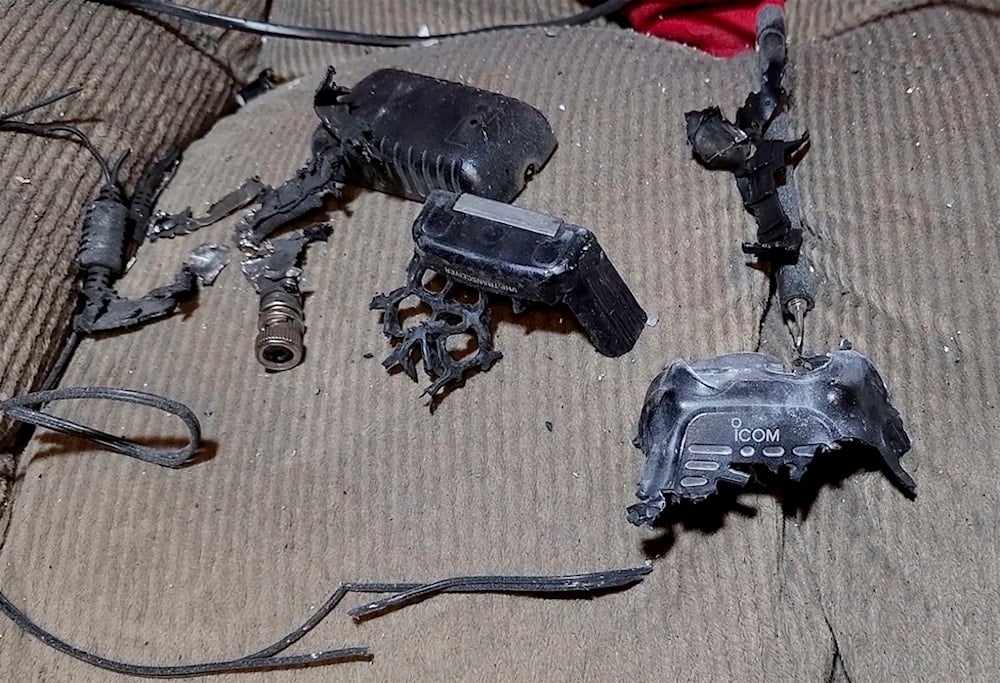Bulgaria, Hungary, Taiwan, Japan all dragged into Israeli terror plot
Bulgarian security agencies are investigating the involvement of a company suspected of supplying explosive-laden pager devices to Lebanon.
-

An exploded wireless hand-held radio communications device is seen after the Israeli regime launched its second wide-scale terror attack on Lebanon, on September 18, 2024. (AP)
The Bulgarian State Agency for National Security (DANS) is working alongside Bulgaria's Ministry of Interior to investigate a company tied to the sales of wireless telecommunications devices (pagers) to the Islamic Resistance in Lebanon - Hezbollah.
Earlier on Tuesday and Wednesday, the Israeli regime had set off thousands of explosive-laden non-wired communication devices including pagers and walkie-talkies across Lebanese territories. The result was a large-scale Israeli-commissioned terror attack that led to the martyrdom of 37 people and the injury of nearly 3,000 others.
DANS explained in a statement that authorities have not detected the "suspected shipments of paging devices" in Bulgarian territory.
Bulgarian media outlets reported that a Sofia-based company, under the name "Norta Global Ltd", facilitated the sale of the wireless communication devices, which were used as a tool of terror in Lebanon.
Read more: Turkiye, Russia warn against escalation risk following pagers attack
From Hungary to Japan, Israeli terror ploys threaten global security
The case has involved multiple entities in various countries so far, including Taiwan, Hungary, Bulgaria, and Japan, pointing to the complexity of the premeditated Israeli terrorist activities.
In Taiwan, where the pagers were initially suspected to have been manufactured, manufacturer Gold Apollo said the pagers were produced and developed by a European company hours after the attack.
"The pagers were both developed and produced abroad, so they have nothing to do with Taiwan," CEO Hsu Chin-Kuang said on Wednesday.
He also said that about three years ago, Gold Apollo signed a cooperation agreement with a European company, which was only involved in distributing Gold Apollo products at first, but later began independently developing the pagers involved in the blasts.
Farther east, Japanese company Icom, responsible for the manufacturing of walkie-talkie devices, said that it cannot confirm whether or not it signed off on the shipment of wireless products that blew up in Lebanon.
It also said that it had discontinued the product, the IC-V82, 10 years ago.
In a similar context, security sources told Al Mayadeen that the pager devices were rigged at the source with an integrated circuit and explosive materials that cannot be detected with "standard testing equipment."
"The available detection devices and even those [on an international scale] and in international airports could not uncover the planted explosive material due to complex techniques used in this operation," the sources explained.
Read more: Sayyed Nasrallah challenges Netanyahu to return settlers to North

 3 Min Read
3 Min Read








